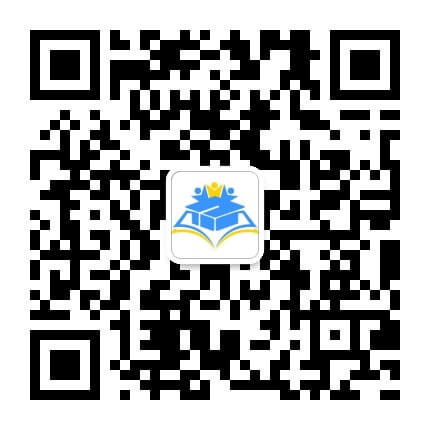
女王学院介绍
Queen’s College- 学校概况
- 院校简介

What it’s like
Founded in 1843, as a Methodist foundation. Its premises are on a single, semi-rural campus in 30 acres
on the southern outskirts of Taunton. Very pleasant buildings and fine playing fields. It is now fully
co-educational, having first admitted girls in the seventies. The pre-prep and nursery are combined. There has been much development in the last 30 years, including a fine concert/assembly hall, music school, science labs and a performing arts centre. Facilities are good and the school is well positioned for field work and expeditions to Exmoor, Dartmoor and the Quantocks. Examination results are very good.
An exceptionally strong music department; innovative drama and art. There is a good range of games
and sports, with a special emphasis on outdoor pursuits. Many activities and a distinguished record in the Duke of Edinburgh’s Award Scheme. The school enjoys vigorous local support.
School profile
Pupils & entrance
Pupils: Age range 3–18; 721 pupils (excluding nursery), 552 day (300 boys, 252 girls), 169 boarding (93 boys, 76 girls). Senior department 11–18, 500 pupils (278 boys, 222 girls).
Entrance: Main entry ages 11, 13 and 16. Common Entrance or own exam used; for sixth-form entry, 5 GCSEs at least grade C (grade B in sixth-form subjects). State school entry, 25% main intake, under 10% to sixth form. 60+% of senior intake from own junior school.
Scholarships & bursaries 45 pa scholarships, value up to 50% of fees: 21 academic, 6 drama, 6 sport, 12 music (awarded at 8, 10–13, 16). Some bursaries, based on financial need.
Head & staff
Headmaster: Christopher J Alcock, in post from 2001. Educated at Sevenoaks
School and Durham University (geography). Previously Deputy Head at King Edward’s Witley
and taught at Stamford School and Queen’s College.
Teaching staff: 66 full time, 38 part time
(senior school).
Exam results
GCSE: In 2003, 82 pupils in Year 11: 84% gained at least grade C in 8+ subjects; 14% in 5–7 subjects. Average GCSE score 60 (62 over 5 years).
A-levels: 49 in Year 13: 14% passed in 4 subjects, 76% in 3 subjects. Average tariff points 309.
University & college entrance 94% of 2003 sixth-form leavers went on to a degree course (24% after a gap year). 45% took courses in science & engineering, 5% in law, 7% in economics & business, 33% in humanities & social sciences, 2% in art & design, 7% in vocational subjects eg physiotherapy, hotel and catering. Others typically go straight into careers.
Curriculum GCSE, AS and A-levels. 22 GCSE and A-level subjects, 24 AS-level (including A-level music).
Sixth form: Most sixth formers take 4 subjects at AS-level, 3 at A-level. On average 30% took science A-levels; 40% arts/humanities, 30% both. No A-level general studies; key skills not taught.
Vocational: Work experience available.
Special provision: Specialist help for dyslexics.
Languages: French and Spanish offered at GCSE and A-level. Regular exchanges to France and Spain.
ICT: Taught both across the curriculum and as a discrete subject (1–2 lessons/week in Years 7–9 and Year 12); GCSE and A-level offered. 150 computers for pupil use (9 hours a day); network across whole site and internet access in all departments.
The arts
Music: 50% of pupils learn a musical instrument; instrumental exams can be taken. Some 15 musical groups including choir, 2 orchestras, wind band, madrigal group, rhythm & blues band. 3 recent members of National Youth Orchestra, 5 of National Children’s Orchestra.
Drama: Drama offered; GCSE and A-level drama and theatre studies may be taken. Many pupils are involved in school productions; 3 in National Youth Theatre.
Art & design: On average, 25 take GCSE, 5 A-level. Design, pottery, textiles, photography and printmaking also offered.
Sport & activities
Sport: Rugby, hockey, netball, cricket, badminton, swimming, tennis, rounders, athletics, cross-country, fencing, squash compulsory. GCSE and A-level PE and RLSS exams and CCPR Sports Leaders Course may be taken.
Activities: Pupils take bronze, silver and gold Duke of Edinburgh’s Award. Community service optional. Up to 10 clubs, eg war games, model making, sixth-form society, canoeing.
School life
Uniform: School uniform worn until sixth form.
Houses & prefects: Competitive houses. Prefects, head boy/girl, head of house and house prefects – appointed by the Head.
Religion: Part
of a group of Methodist schools.
Social: Organised trips abroad. Pupils allowed to bring own car or
bike to school. Meals self-service. School shop. No tobacco or alcohol allowed.
Discipline Fines and suspension used. Pupils failing to produce homework are detained to do it.
Boarding Upper sixth have own study bedroom, lower sixth share with 2; 50% are in dormitories of 6+. Houses of 40, same as competitive houses. Resident qualified nurse. Central dining room. Visits to local town allowed for older pupils.
问答
-
Q: 爱丁堡玛格丽特女王大学好不好2024-03-19A:
爱丁堡玛格丽特女王大学是英国的一所综合性大学。该校于1875年建造于爱丁堡,1972年更名为玛格丽特女王学院。1992年枢密院给予学校完全的独立的学位授予权,玛格丽特女王学院可授予研究型或更高级别的学位。1999年学校更名为玛格丽特女王大学学院。经过进一步的发展,2007年1月,学校正式升级为玛格丽特女王大学。
学术优势
玛格丽特女皇大学学院约有5400名学生和500多名教职员工,国际学生比例占11%。
学校的主要院系和课程分布为:商
学院、企业学院和管理学院:管理学和创业,市场营销、零售和消费品研究,旅游和活动。
戏剧学院和创业产业学院:戏剧和表演,生产和文化管理。
健康科学院:营养学、营养和生物科学,护理学,职业治疗和艺术疗法,物理疗法,足病科,X光线照相术,国际健康发展研究所。
社会科学院、传媒交流学院:媒体、交流和社会学,心理学,演讲和聆听科学。2024-03-19 -
Q: 女王学院优势有哪些2024-03-08A:
爱丁堡玛格丽特女王大学是英国的一所综合性大学。该校于1875年建造于爱丁堡,1972年更名为玛格丽特女王学院。1992年枢密院给予学校完全的独立的学位授予权,玛格丽特女王学院可授予研究型或更高级别的学位。1999年学校更名为玛格丽特女王大学学院。经过进一步的发展,2007年1月,学校正式升级为玛格丽特女王大学。
学校设施
有3,000多名学生在爱丁堡玛格丽特女王大学热情、友好和安全的环境中学习,品学兼优的教职员工努力工作,以确保各个专业的教学符合社会和时代的需要。
大学的设施包括计算机房、综合图书馆设施、游泳池、球场、银行、商店以及修葺一新的宿舍楼。学校有一全天候的运动场,用于网球、足球、曲棍球和无挡板篮球。此外,学生们还可以使用爱丁堡的公共体育设施,包括专门为英联邦修建的英联邦游泳池以及每年举办许多体育活动的梅多班克体育场。
住宿与福利条件
大学为外国留学生提供全面的学术、医疗、就业和咨询服务,并保障每个学生在此学习期间可在学校宿舍住宿。
爱丁堡玛格丽特女王大学建有多栋学生宿舍楼,外国留学生居住可享受优先分配权。根据英国国民保健制度,所有在英国学习时间超过半年的外国留学生均可在英国享受免费医疗。大学的外国留学生咨询顾问能向外国留学生提供十分周到、细致的服务。2024-03-08 -
Q: 女王学院学校设施怎么样2024-01-25A:
爱丁堡玛格丽特女王大学是英国的一所综合性大学。该校于1875年建造于爱丁堡,1972年更名为玛格丽特女王学院。1992年枢密院给予学校完全的独立的学位授予权,玛格丽特女王学院可授予研究型或更高级别的学位。1999年学校更名为玛格丽特女王大学学院。经过进一步的发展,2007年1月,学校正式升级为玛格丽特女王大学。
学校设施
有3,000多名学生在爱丁堡玛格丽特女王大学热情、友好和安全的环境中学习,品学兼优的教职员工努力工作,以确保各个专业的教学符合社会和时代的需要。
大学的设施包括计算机房、综合图书馆设施、游泳池、球场、银行、商店以及修葺一新的宿舍楼。学校有一全天候的运动场,用于网球、足球、曲棍球和无挡板篮球。此外,学生们还可以使用爱丁堡的公共体育设施,包括专门为英联邦修建的英联邦游泳池以及每年举办许多体育活动的梅多班克体育场。
院校特色
本校具有颁发英国学位的资格,提供的课程包括商业、管理和信息、剧场艺术、食物、餐饮业以及零售业相关的技术专业课程。学位颁授则有BA、 BA(Hons)、BSc、Bsc(Hons)、PgDip、MA及MSc课程,学校另开设英文基础课程和先修课程。2024-01-25 -
Q: 女王学院留学怎么样2024-01-15A:
爱丁堡玛格丽特女王大学是英国的一所综合性大学。该校于1875年建造于爱丁堡,1972年更名为玛格丽特女王学院。1992年枢密院给予学校完全的独立的学位授予权,玛格丽特女王学院可授予研究型或更高级别的学位。1999年学校更名为玛格丽特女王大学学院。经过进一步的发展,2007年1月,学校正式升级为玛格丽特女王大学。
大学特色
1.爱丁堡玛格丽特女王大学开设的课程主要涉及以下学科领域:商科、管理与信息、舞台艺术和保健,体现了该大学以职业和专业教育为重点的特色
2.在国际上享有很高声誉,每年有大批外国留学生从世界各地来大学就读各门课程
3.学校以发展学生独立追求和教育研究经验为第一选择,成为当地教学质量一流的学校
4.大学出色的教学质量、良好的福利待遇等得到了学生的很高评价,其中旅游管理、酒店管理和护理专业在英国同类专业中名列前茅
5.大学建有多栋学生宿舍楼,外国留学生居住可享受优先分配权
6.英国大学网留学专家表示,由于申请就读的学生日益增多,大学在莱思建立了另一个校园,该校园颇具特色,让人产生真正的群体感
7.大学的设施包括计算机房、综合图书馆设施、游泳池、球场、银行、商店以及修葺一新的宿舍楼。学校有一全天候的运动场,用于网球、足球、曲棍球和无挡板篮球
8.学生可以使用爱丁堡的公共体育设施,包括专门为英联邦修建的英联邦游泳池以及每年举办许多体育活动的梅多班克体育场2024-01-15 -
Q: 女王学院入学要求有哪些2024-01-13A:
爱丁堡玛格丽特女王大学是英国的一所综合性大学。该校于1875年建造于爱丁堡,1972年更名为玛格丽特女王学院。1992年枢密院给予学校完全的独立的学位授予权,玛格丽特女王学院可授予研究型或更高级别的学位。1999年学校更名为玛格丽特女王大学学院。经过进一步的发展,2007年1月,学校正式升级为玛格丽特女王大学。
入学要求
本科
高中毕业IELTS5.5
戏剧专业IELTS6.0
演讲与语言疗法IELTS7.5
硕士预科
仅有护理学及听力学两个专业方向
学士学位IELTS6.0
硕士
学士学位IELTS6.0
音乐疗法、物理疗法、护理、公共关系IELTS6.5
听力学、饮食学IELTS7.0演讲与语言疗法IELTS7.52024-01-13


